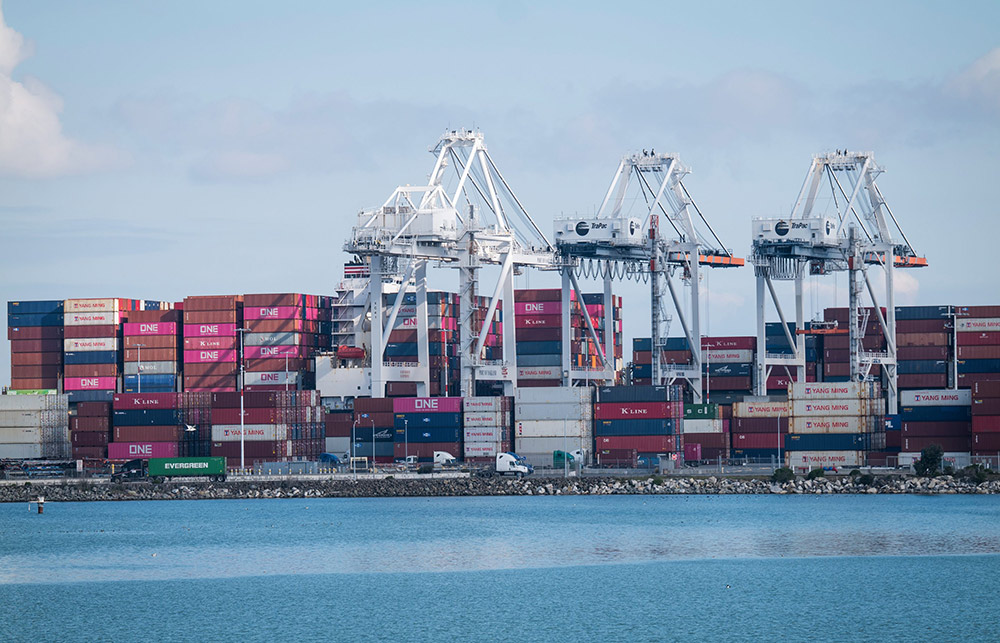
當全球都在與不斷肆虐的新型冠狀病毒抗爭時,俄羅斯和OPEC國家增加能源供應所造成的市場波動,又給美國能源業帶來了二次沖擊。
自2000年代后期,美國已成為全球領先的石油和天然氣生產國。上月,為滿足消費者需求,美國創下了石油產量1300萬桶,天然氣產量965億立方英尺的歷史記錄。
水力壓裂等創新技術的應用,使生產商能夠對美國儲量豐富的頁巖油氣進行開采。美國能源供應由此從短缺變成充足,美國也因此從能源進口國變成了出口國。
面對美國能源領導地位的威脅,全球多個國家開始積極采取措施以抑制美國能源業的發展,這并不意外。需求下降的情況下,俄羅斯等國仍在短期內增加全球能源供應,就是為了應對美國作為全球能源超級大國所帶來的新發展模式。新型冠狀病毒疫情的確使這種棘手局面變得更加復雜,但貿易保護主義措施等通過政府干預的手段,絕對不是解決問題的答案。
雖然各大媒體頭條都報道,美國不可能在這場全球能源市場風波中完全幸免;但與二十年前相比,今天美國的經濟和能源安全已經有所改善。如果從歷史和市場基本面的角度進行衡量,美國將更加強大并繼續發揮必要的能源領導力,同時滿足全世界對天然氣和石油的長期需求。
我們無數次看到,自由市場政策能夠提高行業穩定性,促進行業發展。當全球市場出現動蕩時,關稅、制裁等應對措施最終會傷害到美國生產商及消費者。
事實上,石油天然氣行業有許多理由可以反對政府采取加征關稅或實行配額等有害的貿易措施。
首先,關稅會導致美國必須進口的關鍵生產材料漲價,延誤能源項目進度,從而影響美國的能源領導地位。對外加征關稅已經導致關鍵工業原材料的成本增加。因此不能在這場公共健康危機中重蹈覆轍。
相反,政府應該通過外交手段解決問題,并與全球供應合作伙伴共同應對當前供應過剩的市場環境。
其次,過去幾十年,經歷過短暫的經濟蕭條和地緣政治博弈之后,全球能源需求依舊強勁。例如上世紀七八十年代,全球能源市場發生的重大事件,以及其后的每一次經濟衰退,包括2008-2009年的金融危機。市場在事后都成功反彈。
雖然全球對美國能源產品的短期需求可能會有所下降,但長期需求依舊強勁。OPEC和國際能源署最近下調了短期需求預測,但美國石油的特定物理性質,如低粘度和低硫含量等,使其適用于相對簡單和低成本的煉油工藝,所以美國石油在國際市場上很受歡迎。
從全球煉油產能及其增長情況來看,亞太地區尤其是中國和印度是增長最快的市場,其對輕質原油的需求量最大。去年亞太地區購買了42%的美國出口原油。隨著全球人口恢復正常、經濟規模擴大以及生活標準的不斷提高,這種趨勢不會改變。
第三,美國石油天然氣行業曾經經歷過市場下滑,其恢復能力和創新力都經過了實踐的檢驗。技術創新將提高生產效率,新管道基礎設施也證明了美國能源革命的實力和持久力。
最后,美國石油天然氣行業必定會有長期規劃和投資領域。其需要通過持續的資本投入,以確保在任何情況下都能滿足能源需求。同樣懸而未決還有,當前急需的數萬億美元基礎設施建設和投資,以及數十億美元的資本項目建設。
市場的意外波動,給美國能源業、員工、各州及生活社區都帶來了不小的挑戰,他們都扮演著至關重要的角色。當下的挑戰無須粉飾:新型冠狀病毒帶來了巨大的不確定性,未來幾周甚至幾個月,所有行業都將面臨艱難的決定。
美國及其石油天然氣行業,都曾經歷過一段錯綜復雜的時期。問題解決者們將致力于提供安全可靠、經濟實惠和更清潔的能源,以克服眼前及未來的挑戰。石油天然氣行業必定維穩。(財富中文網)
本文作者邁克·薩默斯現任美國石油協會(American Petroleum Institute)主席兼CEO。
翻譯:劉進龍
審校 :汪皓
當全球都在與不斷肆虐的新型冠狀病毒抗爭時,俄羅斯和OPEC國家增加能源供應所造成的市場波動,又給美國能源業帶來了二次沖擊。
自2000年代后期,美國已成為全球領先的石油和天然氣生產國。上月,為滿足消費者需求,美國創下了石油產量1300萬桶,天然氣產量965億立方英尺的歷史記錄。
水力壓裂等創新技術的應用,使生產商能夠對美國儲量豐富的頁巖油氣進行開采。美國能源供應由此從短缺變成充足,美國也因此從能源進口國變成了出口國。
面對美國能源領導地位的威脅,全球多個國家開始積極采取措施以抑制美國能源業的發展,這并不意外。需求下降的情況下,俄羅斯等國仍在短期內增加全球能源供應,就是為了應對美國作為全球能源超級大國所帶來的新發展模式。新型冠狀病毒疫情的確使這種棘手局面變得更加復雜,但貿易保護主義措施等通過政府干預的手段,絕對不是解決問題的答案。
雖然各大媒體頭條都報道,美國不可能在這場全球能源市場風波中完全幸免;但與二十年前相比,今天美國的經濟和能源安全已經有所改善。如果從歷史和市場基本面的角度進行衡量,美國將更加強大并繼續發揮必要的能源領導力,同時滿足全世界對天然氣和石油的長期需求。
我們無數次看到,自由市場政策能夠提高行業穩定性,促進行業發展。當全球市場出現動蕩時,關稅、制裁等應對措施最終會傷害到美國生產商及消費者。
事實上,石油天然氣行業有許多理由可以反對政府采取加征關稅或實行配額等有害的貿易措施。
首先,關稅會導致美國必須進口的關鍵生產材料漲價,延誤能源項目進度,從而影響美國的能源領導地位。對外加征關稅已經導致關鍵工業原材料的成本增加。因此不能在這場公共健康危機中重蹈覆轍。
相反,政府應該通過外交手段解決問題,并與全球供應合作伙伴共同應對當前供應過剩的市場環境。
其次,過去幾十年,經歷過短暫的經濟蕭條和地緣政治博弈之后,全球能源需求依舊強勁。例如上世紀七八十年代,全球能源市場發生的重大事件,以及其后的每一次經濟衰退,包括2008-2009年的金融危機。市場在事后都成功反彈。
雖然全球對美國能源產品的短期需求可能會有所下降,但長期需求依舊強勁。OPEC和國際能源署最近下調了短期需求預測,但美國石油的特定物理性質,如低粘度和低硫含量等,使其適用于相對簡單和低成本的煉油工藝,所以美國石油在國際市場上很受歡迎。
從全球煉油產能及其增長情況來看,亞太地區尤其是中國和印度是增長最快的市場,其對輕質原油的需求量最大。去年亞太地區購買了42%的美國出口原油。隨著全球人口恢復正常、經濟規模擴大以及生活標準的不斷提高,這種趨勢不會改變。
第三,美國石油天然氣行業曾經經歷過市場下滑,其恢復能力和創新力都經過了實踐的檢驗。技術創新將提高生產效率,新管道基礎設施也證明了美國能源革命的實力和持久力。
最后,美國石油天然氣行業必定會有長期規劃和投資領域。其需要通過持續的資本投入,以確保在任何情況下都能滿足能源需求。同樣懸而未決還有,當前急需的數萬億美元基礎設施建設和投資,以及數十億美元的資本項目建設。
市場的意外波動,給美國能源業、員工、各州及生活社區都帶來了不小的挑戰,他們都扮演著至關重要的角色。當下的挑戰無須粉飾:新型冠狀病毒帶來了巨大的不確定性,未來幾周甚至幾個月,所有行業都將面臨艱難的決定。
美國及其石油天然氣行業,都曾經歷過一段錯綜復雜的時期。問題解決者們將致力于提供安全可靠、經濟實惠和更清潔的能源,以克服眼前及未來的挑戰。石油天然氣行業必定維穩。(財富中文網)
本文作者邁克·薩默斯現任美國石油協會(American Petroleum Institute)主席兼CEO。
翻譯:劉進龍
審校 :汪皓
As the world grapples with the ongoing spread of the coronavirus, the decision by Russia and the OPEC nations to increase energy supplies while demand is dropping has contributed to ongoing market instability and delivered a shock to America’s evolving energy picture.
Since the late 2000s, the U.S. has emerged as the world’s leading producer of natural gas and oil—last month producing at estimated record levels of 13 million barrels of oil and 96.5 billion cubic feet of natural gas to meet consumer demand.
Innovative technologies like hydraulic fracturing have enabled producers to reach abundant U.S. shale reserves, and thus changed America’s trajectory from energy scarcity to abundance and from importing energy to exporting it.
It is not surprising, then, that some global energy players are threatened by American energy leadership and have actively tried to prevent its progress. Russia and other nations’ push to increase global energy supply despite lower demand in the short term is a reaction to America’s new paradigm as a global energy superpower. This is a challenging situation, compounded by the impact of the coronavirus, but interventions like protectionist trade measures are not the answer.
While today’s headlines demonstrate that our nation isn’t shielded entirely from impacts to global energy markets, America is in a better economic and energy security position today than it was in the past two decades. If history and market fundamentals are any measure, the U.S. will emerge stronger and continue to provide necessary energy leadership to continue to meet the world’s long-term demand for natural gas and oil.
We’ve seen time and again that free market policies provide greater stability and growth. Certain reactions in times of global market unrest—such as tariffs or sanctions—ultimately hurt U.S. producers and consumers.
There are multiple reasons the oil and natural gas industry does not want the government to enact harmful trade measures like tariffs or quotas.
First, tariffs delay energy projects by increasing the price of critical production materials not available in the U.S., hurting American energy leadership. Imposing tariffs on foreign countries has already resulted in higher costs for vital industry inputs. We shouldn’t repeat those mistakes during a public health crisis.
Instead, the administration should resolve these issues diplomatically and engage with our global supply partners to address the currently oversupplied market environment.
Second, global energy demand has remained robust for decades, following periods of transitory economic duress and geopolitical jockeying. Prominent examples are the seminal global oil market events of the 1970s and 80s and every recession since then, including the financial crisis of 2008-09. Markets bounce back.
Short-term demand for our products may be down, but long-term energy needs across the globe remain strong. OPEC and the International Energy Agency recently cut short-term demand projections, but certain physical properties—light viscosity and low sulfur content—make U.S. oil an attractive international product, as it is well-suited for relatively simple and low-cost refining processes globally.
When you look at refining capacity and its growth around the world, the Asia Pacific region, and especially China and India, are the fastest-growing markets, with the most voracious appetites for light crude oil. Last year, despite trade tensions, the Asia Pacific region purchased 42% of U.S. crude oil exports. That won’t change as populations return to normal, economies expand, and living standards improve worldwide.
Third, this is an industry that has proven resilient and innovative through market downturns in the past. Technological innovation is leading to productivity gains and new pipeline infrastructure is a testament to the strength and staying power of the U.S. energy revolution.
Finally, the natural gas and oil industry has, by necessity, long-term planning and investment horizons that require continued capital commitments to ensure that energy demands are met no matter what. What hangs in the balance now for the U.S. are trillions of dollars in much-needed existing energy infrastructure and investments, plus billions more in capital projects construction.
There’s no sugarcoating the challenges that unexpected market shifts present to America’s energy industry, our employees, and the states and communities where we live, all of which are vital to America. All industries face difficult decisions in the coming weeks and months, as the coronavirus has unleashed significant uncertainty.
As a nation and industry, we have weathered complicated periods before. The natural gas and oil industry will stay steady as problem solvers focused on providing safe, reliable, affordable, and cleaner energy to overcome immediate and future challenges.
Mike Sommers is president and CEO of the American Petroleum Institute.






